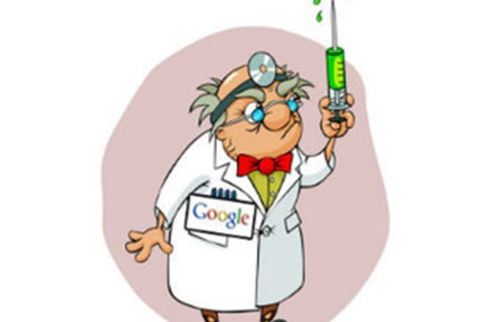
In researching a condition, it is smart to first evaluate the risks involved and decide if this is something that really lends itself to D.I.Y. E.g., I seriously doubt that any rational person would let Dr. Google be the only treatment for their cancer. The internet is a source of useful and reliable information but also some sketchy moneygrubbing stuff and some that is just plain wackadoodle. The trick is to know which is which.
I start with sites that I know to be reliable like the Mayo Clinic and the Cleveland Clinic. Those sites are helpful to explain the issue you are investigating and put it in context. The recommendations of those sites are mainstream medicine for the most part but will often give the pros and cons of popular alternative practices. The nonprofit charity websites (e.g. American Diabetes Assn.) do offer some useful information, but some seem to be mainly focused on fundraising and/or are swayed too much by the government or the special interests of their major funding sources. When I search the web for a condition or an alternative such as a nutrient or herb, I might get hundreds of millions of results—overwhelming! (You can use one of the AI apps like ChatGPT or Bard to help organize the info but you have to be careful how you frame the question to it and remember they can be wrong.) I pick through that slog of links looking for (1) experts that I have known to be careful / credible and who are not just trying to sell something and (2) new angles I hadn’t thought of (which I then research).
Next, I take what I’ve gathered so far and plug the items into the government science database, pubmed.gov. That site quickly tells me if there have been studies on the topic. Usually there are at least a few. But I don’t think standard studies are the only or final answer on value and safety. That is because: (1) not enough studies are done on alternatives and (2) it is very easy to ignorantly or even purposely structure a study to make an alternative look bad (so that folks will stick with drugs?).
Why are there few studies? Studies are expensive—especially those involving humans (complex), hard to control and who come in a unending variety. That natural remedies often work best gradually or in combinations also makes it more challenging. Most money for research comes from pharmaceutical companies because they can patent the result and get their investment back plus giant profits. Vitamins, minerals, herbs, and natural techniques cannot be patented and therefore it doesn’t make business sense for a company to invest many millions knowing that in the end, any competing company can use that expensive research for free to sell a rival product. Why doesn’t the government fund them? They do fund a lot of health research but are subject to skepticism from regulators if they stray too far from what is already supposedly proven. University scientists submit grant requests for federal funding. Unfortunately, very often behind the scenes, “Big Pharma” nudges the efforts toward basic research which will ultimately lead to drug opportunities or at the least not to competition from natural things.
There are other complicated subtle financial pressures. For instance, let’s say that you are a graduate student who wants to research the effect that mercury found in corn syrup has on growing children. The study would be ghastly expensive because, for one thing, it would take many years to study the long-term effects of the accumulation of very small daily amounts. Also, because USDA and “Big Food” (agribusiness giants, the ingredient processors and food product manufacturers) provide other funding for universities so they would likely be told about the proposal. They would then lobby to deny the grant because they don’t even want it to be known that there is mercury in corn syrup.
After gathering as much data as I can, I run my tentative conclusion through a mental filter asking:
(1) Does that make good common sense? Example–a certain brand of aloe might claim to be an efficient laxative. However, if it is a laxative, that would only be because the maker did not remove all the aloin, a bitter, yellow-brown colored compound that is a harsh toxin. Any laxative effect is just the body trying to get rid of it. (One reason I’m proud of Lily of the Desert Aloe is that they so effectively purify that healing plant.) Also, perhaps constipation would be better treated by making sure the person has sufficient magnesium which is needed anyway for hundreds of other functions. Always ask, “does the remedy come with risks that might be more dangerous than the original problem (ask that of pharmaceuticals too) and/or does it interfere with medicine you take?” The reverse is true, if the remedy has an excellent safety record (think hydroxychloroquine for covid) what could it hurt to try?
(2) Is that answer consistent with history? Example–if an expert or study criticizes ashwagandha, I’m going to be automatically suspicious. That traditional Ayurvedic (Indian) medicinal herb has been valued for 3,000 years for helping the body cope with stress and restore balance. Those users were not stupid, and clearly, no drug gets tested as thoroughly as that. While drugs later show side effects, studies now are showing fringe benefits of ashwagandha for anxiety, brain and immune function.
I like to think that the information in the HBN newsletter and library is reliable because I follow those procedures and draw from textbooks, favorite authors, my files and personal experience counseling. Next week I will discuss a request that I got about an odd cancer “cure” someone found on the internet.










 July 20, 2023
July 20, 2023 